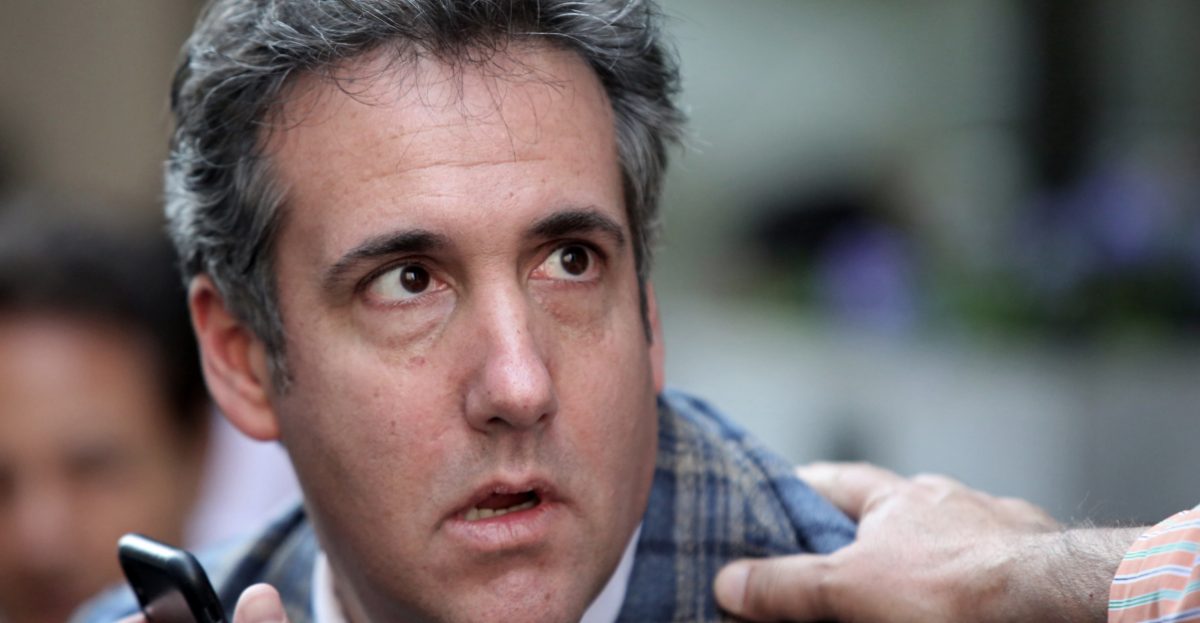
Legal experts have a couple of answers to the following question: Why isn’t President Donald Trump making a big legal stink about the release of his former lawyer’s audio tapes into the government’s hands? The answers are not good.
Last Thursday, in what was perhaps considered a footnote in the grand scheme of things, we were actually gifted a scoop ahead of the Friday news that Michael Cohen had recorded a secret audio tape of at least one conversation he had with Trump two months before the 2016 election. On Monday, Special Master Barbara S. Jones announced that a full 12 audio files have officially been handed over to the government, sparking questions about why Trump has not argued they are covered by attorney-client privilege.
The key thing to know here is that Cohen (not Trump) previously argued these items were protected by attorney-client privilege. In light of the Special Master’s Thursday decision — and after hinting he was increasingly more willing to cooperate with the feds — Cohen declined to object to the release of these materials. The next morning, news that a Cohen-Trump recording existed spread like wildfire.
Former federal prosecutors Daniel Goldman and Renato Mariotti speculated on Twitter that it is possible Trump and his attorney Rudy Giuliani are cutting their losses. They argued that the only reasons Trump would waive attorney-client privilege claims on these tapes is that he is deeply concerned the “crime-fraud” exception is the reason why these materials are being handed over to the government as evidence.
“I can think of no good legal reason for the Trump team not to assert privilege over these tapes. Their strategy, such as it is, must involve the optics of being associated with Cohen or with arguing with the DOJ over the crime-fraud exception to attorney-client privilege,” Mariotti said.
Generally, conversations between a lawyer and a client are privileged. However, if the lawyer and the client are seeking to perpetrate a crime, fraud, or tort, the privilege does not apply. The root of the rule goes back to a case from 1906, but it’s been re-defined several times by other cases. In other words, here, the issue is that by claiming the privilege, Trump, et al., risk the communications being deemed those made in furtherance of something nefarious, and then released anyway. So, if Trump and his lawyer Rudy Giuliani challenged this and lost because of the crime-fraud exception, the public relations nightmare would be far worse than laying low in the meanwhile.
In case you missed it, Special Master Jones announced Monday that the “parties withdrew their designations of ‘privileged’ as to 12 audio items that were under consideration.”
“Based upon those de-designations, the Special Master released the 12 items to the Government that day,” the filing said.
Jones has previously shut down Michael Cohen’s efforts to keep certain evidence out of the Government’s hands on grounds that this information was privileged (as in, attorney-client privilege), partially privileged, or “highly personal.” Jones has been tasked with sifting through the materials seized by the FBI in the April raids on Cohen’s office, home, and hotel room.
Cohen did not object on Thursday when 22 of the contested items Jones referred to were deemed “not privileged.” Just a day after Jones ordered the release of those 22 items, the New York Times ran a story about an audio tape that was in the Government’s possession. The tape contained a conversation between Cohen and Trump two months before the election.
President Donald Trump‘s attorney Rudy Giuliani notably reacted to the news, saying it shows Trump did nothing wrong.
“Nothing in that conversation suggests that [Trump] had any knowledge of it in advance,” he said. “In the big scheme of things, it’s powerful exculpatory evidence.”
Trump said the same:
Law&Crime previously wondered why Giuliani jeopardized a potential privilege defense with his Friday remarks.
[Image via Yana Paskova and Getty Images]